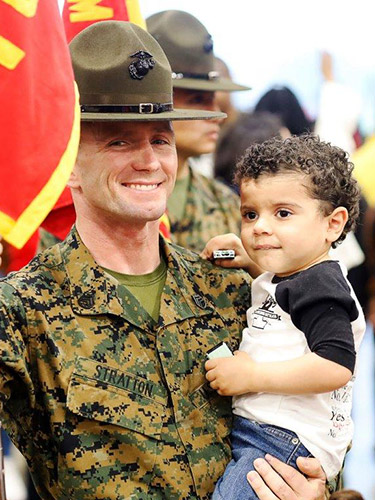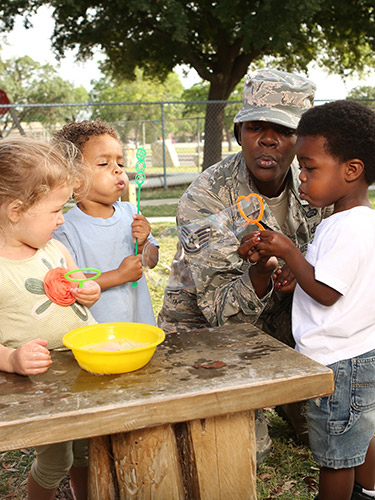Child Care and School Programs
Military families like yours can access a range of child care and school programs. Click on a program name to learn more about the program and how it is designed to support military families.
-
Military-Operated Child Care Programs
Facility-based programs and family child care providers
Military-Operated Child Care Programs
-
Military Child Care in Your Neighborhood (MCCYN)
Fee assistance for families using community-based care
Military Child Care in Your Neighborhood (MCCYN)
-
Child Care in Your Home (CCYH)
Fee assistance for full-time child care in your home
Child Care in Your Home (CCYH)
-
Navy Weekend Drill Child Care Pilot
Fee assistance for child care on drill weekends
Navy Weekend Drill Child Care Pilot
Program Quality Standards
Raising children to grow into healthy, productive members of society is no small feat and truly does take a village. That’s why the DoD is committed to providing military families affordable, high-quality child and youth care in a safe, healthy, and nurturing environment. High-quality care promotes positive social, emotional, cognitive, and physical development for children. High-quality care that’s also easily accessible and affordable supports parents’ mission readiness and provides families financial peace of mind.
To best address all DoD connected families’ unique needs, the military child care system offers several affordable options that all meet rigorous standards for quality:
- Military-operated programs are based in child care and school age centers. They must be DoD certified and meet national accreditation requirements.
- Military Family Child Care (FCC) providers care for a small group of children in their own private homes as a quality alternative to center-based care. All providers are DoD-certified and monitored regularly.
- The Military Child Care in Your Neighborhood (MCCYN) program partners with community child care providers to offer DoD connected families greater access to high-quality, affordable care. Providers participating in the MCCYN program must have a state license and either have a national accreditation or participate in the MCCYN-PLUS program.
- Designed to support families with nontraditional work schedules, Child Care in Your Home (CCYH) is a DoD pilot program that offers eligible families fee assistance to pay for care provided in their home. Individual providers participating in the CCYH program must complete all required training, obtain a favorable background check, and agree to quarterly home visits.



